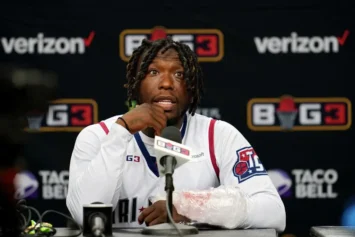
Blood donors in the Black community are lacking. And people like Kenney Moore have to hope there is enough for the transfusions he needs every three-to-five weeks to avoid another stroke.
His mother, Hazel Truesdell, said he is an amazing kid “who challenges everything. You’d never know the things he goes through.”
Because she knows of the shortage through helping her son, Truesdell, who lives in Waukegan, Ill., is teaming up with LifeSource to encourage more Blacks to donate their blood. Truesdell said the chances of a positive result increase if the donor and the recipient are the same race.
According to LifeSource, less than 1 percent of blood donations are from Blacks or Hispanics. “Though compatibility is not based on race, genetically similar blood is best for patients who need repeated or large volumes of blood transfusion,” says the organization’s website.
“I’m trying to bring awareness to African-Americans, because we rarely donate blood,” Truesdell said on a Chicago radio program.
One of her efforts with LifeSource is a blood drive tomorrow from 10 a.m. to 4 p.m. in the gym at Katzenmaier Elementary School in North Chicago. “Only five percent of us donate, which is horrible,” Truesdell said. She hopes this drive will be a step in making it easier for her son to survive.
Sicke cell anemia is a genetic disease that effects the red blood cells that can cause lung tissue damage, pain episodes and strokes. A blocking of blood flow causes damages to the kidneys, liver and other organs. The average life expectancy has improved to mid 40’s.
Bone marrow or stem cell transplants can cure sickle cell anemia, but the treatment isn’t an option for most people because it’s difficult to find well-matched stem cell donors, according to the U.S. National Library of Medicine.


